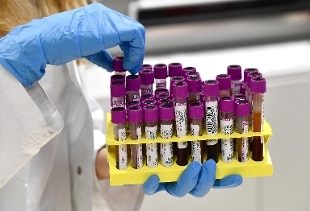Vaccines, Ema: with two doses protected against Delta variant
CureVac Covid Vaccine Only 48% Effective
Share
02 July 2021 Biomarkers identified in blood that help predict whether a person will be protected by the covid vaccine received.
The result, obtained by the University of Oxford, may help speed up the implementation of future vaccines. It is published on the Medrxiv website, which collects studies not yet scrutinized by the scientific community, and taken up by the journal Nature on its website.
"We would like to have an antibody measurement that is a reliable guide to protection, because it could speed up the approval of new vaccines and reduce the cost and duration of trials," comments David Goldblatt, of University College London.
This is what in the immunological field is called serological correlation, that is, the threshold of antibodies above which the vaccinated person can be defined as protected.
For some vaccines, such as those against the flu there is.
Now it is hoped to define this parameter also for the anti covid vaccines.
The Oxford result confirms what has already been observed by other studies, namely the relationship between the highest levels of neutralizing antibodies and protection.
The researchers, led by Merryn Voysey, compared the immune response of those who got sick despite having the vaccine, with that of 1,404 vaccinated people who did not develop a symptomatic infection.
It was thus found that those who had the most neutralizing antibodies had stronger, if not total, protection from symptomatic infection.
The researchers used a model to estimate the levels of antibodies that correspond to the different levels of protection of the covid vaccine in the trials, ranging from 50% to 90% protection. Other vaccines that stimulate a similar immune response should generate a similar level of protection against symptomatic infections.
"It is not certain, however, whether the antibody levels established in the study will help predict the success of other vaccines, especially those based on different technologies," Goldblatt continues. According to Pfizer's chief scientific officer of viral vaccines, Philip Dormitzer, "it is important to distinguish between biomarkers that predict vaccine success only and those responsible for their protective effects."

